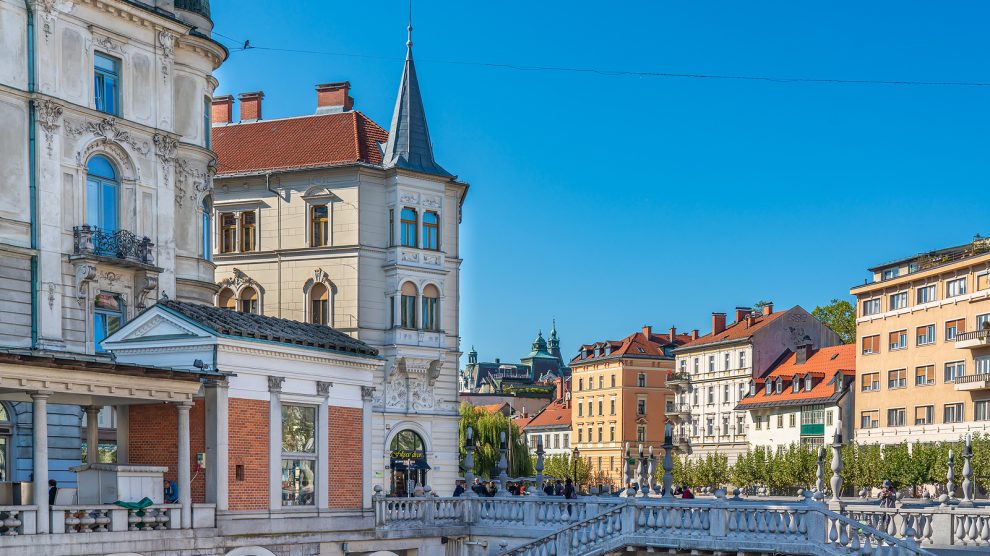Despite facing significant challenges, Slovenia’s economy remains robust.
Economic growth in Slovenia has been resilient amid multiple shocks including the devastating floods of 2023 and the broader economic impact of Russia’s war of aggression against Ukraine.
However, disruptions continue to pose risks to growth and highlight the need for structural reforms to durably strengthen economic development, according to the latest Organisation for Economic Co-operation and Development (OECD) Economic Survey of Slovenia, published this week.
The OECD projects GDP growth to pick up from 1.6 per cent in 2023 to 2.3 per cent in 2024, reaching 2.7 per cent in 2025 as private consumption rebounds and inflation eases.
- Growth in Eastern Europe is gaining momentum
- The future of manufacturing in CEE: Transitioning to a high-tech, added value era
- Economy in focus: Slovenia
Inflation meanwhile is projected to decline from 7.2 per cent in 2023 to 3.3 per cent in 2024, then to rise slightly to 3.5 per cent in 2025. The unemployment rate is expected to remain stable at 3.7 per cent in 2024 and 3.5 per cent in 2025.
Indeed, Slovenia’s labour market continues to be tight. Minimum wage increases have kept real wages growing faster than labour productivity. This strong wage growth, together with untargeted fiscal support during the energy crisis, has added to inflationary pressures.
“Slovenia’s economy has grown more strongly over the past five years than the economy across OECD countries and the euro area. Slovenia is well on track to achieve income convergence with higher-income countries,” OECD Secretary-General Mathias Cormann said, presenting the survey in Ljubljana this week alongside Slovenia’s Prime Minister Robert Golob.
“To continue boosting economic progress and resilience, accelerating fiscal consolidation would help lower inflation and rebuild fiscal space. In this context, increasing the effective retirement age would help address long-term spending pressures. Promoting housing supply, including through better land-use planning, to improve housing affordability should also be a key policy priority for Slovenia.”
Housing affordability concerns are growing as the housing sector in Slovenia is strained by high demand and insufficient supply.
Comprehensive reforms are required to streamline land use and permitting procedures, enhance the provision of social housing and promote competition in the mortgage market, the OECD says.
The increase in the costs of living over the past two to three years has highlighted the necessity and urgency of transitioning towards energy-efficient housing, through a combination of regulation and effective support measures.
More women in the workplace
Female employment rates are high in Slovenia, though they could be boosted further through reforms that remove disincentives for second earners to participate in the labour market.
Gender wage gaps are similarly relatively small; still, affordable high-quality childcare, flexible work arrangements and policies addressing gender stereotypes in educational and career choices could help reduce them further.
Further efforts are also needed to achieve net-zero greenhouse gas emissions by 2050, particularly in the agriculture, energy and transport sectors.
Per-capita greenhouse gas emissions are as high as 35 years ago. A greater harmonisation of carbon prices, notably by reducing tax incentives for the use of fossil fuels, will be key for achieving climate targets.
This should be complemented by a faster deployment of renewables to accelerate the energy transition and ensure energy security. A non-binding referendum on expanding Slovenia’s nuclear power plant at Krško is planned for the second half of this year, as the country deliberates on one of the most far-reaching issues for several decades.
Export boost
The OECD’s survey in large part mirrors that of the Vienna Institute for International Economic Studies (wiiw), which published its latest economic forecast for 23 countries of the emerging Europe region, including Slovenia, earlier this week.
The Vienna Institute forecasts slightly higher growth for 2024 at 2.4 per cent, driven by government spending (primarily on rebuilding infrastructure after last year’s severe floods), as well as by private consumption and investment, which will benefit from receding inflation.
It also believes that exports will improve somewhat from 2023 and that the country will see a current account surplus of three per cent of GDP, despite imports growing more than exports.
Unlike many news and information platforms, Emerging Europe is free to read, and always will be. There is no paywall here. We are independent, not affiliated with nor representing any political party or business organisation. We want the very best for emerging Europe, nothing more, nothing less. Your support will help us continue to spread the word about this amazing region.
You can contribute here. Thank you.


